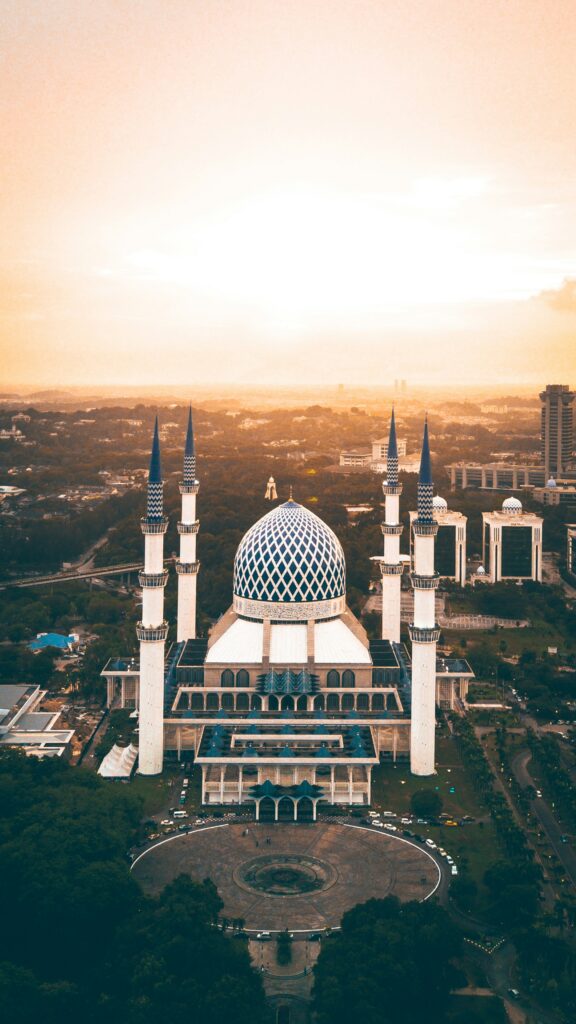
Malaysia comprises 13 states and 3 federal territories and is just a stone’s throw away from Singapore.
In the 18th century, it was a British colony until it achieved independence on 31 August 1957.
Introduction to Malaysia: A Vibrant Fusion of Cultures and Landscapes
Malaysia, nestled in Southeast Asia, is a captivating country known for its stunning natural beauty, rich cultural tapestry, and dynamic cities. This diverse nation, situated on the Malay Peninsula and the island of Borneo, offers an array of experiences that reflect its unique blend of ethnicities, traditions, and modernity. From its welcoming people and bustling cities to its vibrant culture and diverse climate, Malaysia presents a fascinating destination for travelers. This introduction delves into Malaysia’s people, cities, culture, currency, and climate.
The People

The people of Malaysia are known for their warmth, hospitality, and multiculturalism. Malaysia is a melting pot of ethnic groups, including Malays, Chinese, Indians, and various indigenous communities. This diversity is a cornerstone of Malaysian society, fostering a sense of unity and mutual respect among its people. Malaysians are celebrated for their friendly nature and strong sense of community, which is evident in their interactions with visitors and among themselves.
The country’s ethnic diversity is reflected in its festivals, languages, and daily life. Malaysians often embrace a spirit of inclusivity, celebrating each other’s cultural and religious events. This harmonious coexistence contributes to Malaysia’s reputation as a vibrant and welcoming nation.
Cities

Malaysia’s cities are a dynamic blend of historical charm and modern sophistication. Kuala Lumpur, the capital city, is a bustling metropolis known for its impressive skyline dominated by the iconic Petronas Twin Towers. Kuala Lumpur offers a mix of modern shopping malls, vibrant street markets, and cultural landmarks. The city’s Batu Caves, a series of caves and cave temples set in a limestone hill, and the Merdeka Square, which marks Malaysia’s independence, are notable attractions.
Penang, located on the northwest coast of Peninsular Malaysia, is renowned for its rich heritage and culinary delights. The city of George Town in Penang is a UNESCO World Heritage Site, celebrated for its well-preserved colonial architecture, vibrant street art, and diverse food scene. Penang is often considered a food lover’s paradise, offering an array of dishes that reflect its multicultural heritage.
Kota Kinabalu, the capital of Sabah in Malaysian Borneo, is known for its stunning natural surroundings, including the nearby Mount Kinabalu and beautiful coastal areas. The city serves as a gateway to exploring Borneo’s rainforests, wildlife, and indigenous cultures.
Malacca, a historic city on the west coast of Peninsular Malaysia, offers a glimpse into the country’s colonial past. The city’s rich history is reflected in its architecture, including the St. Paul’s Hill, the A Famosa Fort, and the Jonker Street night market, which showcases local crafts and cuisine.
Culture

Malaysia’s culture is a vibrant tapestry woven from its diverse ethnic groups and traditions. The country’s cultural landscape is characterized by a blend of Malay, Chinese, Indian, and indigenous influences, each contributing unique customs, festivals, and cuisines.
Malay culture is deeply influenced by Islam and is evident in traditional practices, clothing, and festivals such as Hari Raya Aidilfitri (celebrating the end of Ramadan) and Hari Raya Haji (marking the end of the Hajj pilgrimage). Traditional Malay arts, such as silat (martial arts) and wayang kulit (shadow puppetry), are integral to the cultural heritage.
Chinese culture in Malaysia is celebrated through festivals like Chinese New Year and the Mid-Autumn Festival. The Chinese community has also made significant contributions to Malaysian cuisine, including dishes like dim sum and char kway teow.
Indian culture is reflected in festivals such as Deepavali (Diwali) and Thaipusam, as well as in the country’s diverse cuisine, which features dishes like roti canai, nasi biryani, and banana leaf rice.
The country’s indigenous cultures, including the Orang Asli of Peninsular Malaysia and the Kadazan-Dusun of Sabah, add another layer of cultural richness. These communities maintain traditional practices, languages, and rituals that are an important part of Malaysia’s heritage.
Currency

The currency of Malaysia is the ringgit, represented by the symbol MYR (Malaysian Ringgit). The ringgit is widely used throughout the country and is essential for daily transactions. Malaysia’s economic stability and growth are reflected in the ringgit’s role in the local and regional economy. The currency supports a range of services and goods, from vibrant street food to luxury shopping, making it convenient for both locals and visitors.
Climate
Malaysia experiences a tropical climate, characterized by high humidity and relatively consistent temperatures throughout the year. The country has two main seasons: the dry season and the monsoon season.
The dry season typically runs from May to September and is marked by lower humidity and less rainfall, making it an ideal time for outdoor activities and travel. The monsoon season, from October to March, brings heavier rainfall and higher humidity, particularly on the west coast of Peninsular Malaysia and in Borneo. This period is also associated with occasional flooding in some areas.
Malaysia’s diverse climate supports a variety of ecosystems, from lush rainforests and tropical islands to highland regions with cooler temperatures. This climatic diversity enhances the country’s appeal as a travel destination, offering opportunities for everything from beach holidays to rainforest adventures.
In summary, Malaysia is a country that offers a rich and diverse experience through its vibrant cities, welcoming people, and multifaceted culture. Its dynamic blend of tradition and modernity, combined with its favorable climate and diverse culinary offerings, makes Malaysia a captivating destination for travelers seeking a unique and enriching experience. Whether exploring the bustling streets of Kuala Lumpur, savoring the culinary delights of Penang, or immersing in the natural beauty of Borneo, Malaysia promises a memorable adventure for all.